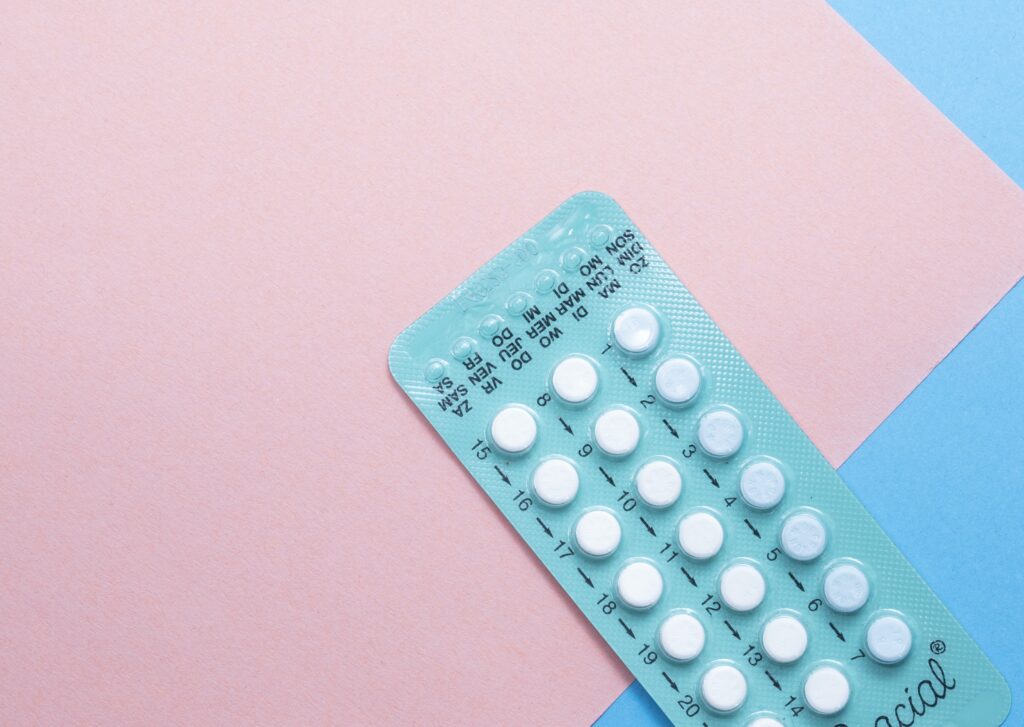
Did you know that hormonal changes can greatly impact a woman’s overall health, emotions, and well-being? From puberty to menopause, women go through a series of hormonal shifts that can sometimes feel overwhelming. But fear not! In this article, we will discuss the different hormonal changes women experience at various life stages and provide you with tips and strategies to manage symptoms and promote hormonal balance. So get ready to navigate the fascinating world of hormonal changes throughout the lifespan and discover how you can take control of your well-being.
Navigating Hormonal Changes Throughout the Lifespan
Navigating through the various stages of life can be both exciting and challenging. As a woman, you will experience numerous hormonal changes that have a significant impact on your overall health, emotions, and well-being. Understanding these changes and learning how to manage them can empower you to lead a balanced and fulfilling life. In this article, we will discuss the different hormonal changes you can expect to encounter throughout your lifespan, from puberty to menopause. Additionally, we will offer valuable tips and strategies to effectively manage the symptoms and promote hormonal balance.

This image is property of images.unsplash.com.
Puberty
Physical changes during puberty
Puberty marks the onset of sexual maturity and is characterized by a multitude of physical changes in your body. These changes include breast development, growth spurts, the appearance of body hair, and the start of menstruation. The physical changes during puberty are driven by hormonal fluctuations, particularly an increase in estrogen and progesterone levels.
Hormonal changes during puberty
Hormonal changes during puberty are responsible for the development of secondary sexual characteristics and the maturation of the reproductive system. Estrogen, the primary female sex hormone, triggers breast development, widening of the hips, and the regulation of the menstrual cycle. Progesterone, another crucial hormone, influences the thickening of the uterine lining and prepares the body for potential pregnancy.
Emotional changes during puberty
Alongside the physical changes, puberty brings about a wide range of emotional changes. Fluctuating hormone levels can lead to mood swings, increased sensitivity, and heightened emotional responses. It is not uncommon to experience feelings of irritability, sadness, or anxiety during this transitional period. It is essential to remember that these emotional changes are a natural part of puberty and, with the right support and coping mechanisms, they can be managed effectively.
Tips for managing hormonal changes during puberty
- Education and open communication: Understanding the physical and emotional changes that accompany puberty can alleviate fear and anxiety. Educate yourself about the process and discuss any concerns with a trusted adult or healthcare professional.
- Regular exercise: Engaging in physical activity releases endorphins, which are known to boost mood and reduce feelings of stress. Aim for at least 60 minutes of moderate-intensity exercise daily to promote hormonal balance.
- Balanced diet: Proper nutrition plays a crucial role in hormonal balance. Incorporate a variety of fruits, vegetables, whole grains, and lean proteins into your diet to ensure you are receiving essential nutrients. Avoid excessive consumption of sugary and processed foods.
- Stress management techniques: Explore various stress management techniques such as deep breathing exercises, meditation, or journaling. These practices can help alleviate emotional distress and promote a sense of calm.
- Seek support: Surround yourself with a supportive network of friends, family, and mentors who can provide guidance and encouragement throughout this transformative period.
Adolescence
Hormonal changes during adolescence
Adolescence is a continuation of the hormonal changes initiated during puberty. While the physical changes may stabilize, hormonal fluctuations remain as the body adjusts to its new adult form. Hormonal changes during adolescence primarily involve the maturation of the reproductive system and the establishment of regular menstrual cycles.
Emotional changes during adolescence
As with puberty, adolescence is often characterized by emotional ups and downs due to hormone fluctuations. It is not uncommon to experience heightened emotional sensitivity, mood swings, and increased stress levels during this time.
Physical changes during adolescence
During adolescence, physical changes continue to occur, albeit at a slower pace than during puberty. Body proportions continue to change as hips widen, and breast development progresses. Menstruation becomes regular for most girls, and the growth of body hair intensifies. These physical changes are influenced by the ongoing hormonal shifts.
Tips for managing hormonal changes during adolescence
- Self-care routine: Establishing a self-care routine that includes regular exercise, sufficient sleep, and proper nutrition is essential for managing hormonal changes during adolescence. Prioritize activities that bring you joy and help alleviate stress.
- Emotional support: Adolescence can bring about complex emotions and uncertainties. Seeking emotional support from trusted friends, family, or even a mental health professional can provide a valuable outlet for expressing and understanding emotions.
- Time management skills: Adolescence often involves increased responsibilities, such as schoolwork and extracurricular activities. Developing effective time management skills can help reduce stress levels and create a healthy work-life balance.
- Healthy friendships: Surround yourself with positive and supportive friendships. Healthy relationships can offer a sense of belonging, understanding, and provide a support network during challenging times.
- Open communication: Maintain open and honest communication with your parents or guardians about your physical and emotional well-being. They can provide guidance, support, and facilitate access to necessary healthcare resources if needed.
Menstruation
Hormonal changes during menstruation
Menstruation, or the monthly menstrual cycle, involves complex hormonal changes that occur in preparation for potential pregnancy. These changes are orchestrated by the interplay of various hormones, including estrogen, progesterone, follicle-stimulating hormone (FSH), and luteinizing hormone (LH).
Physical and emotional changes during menstruation
Menstruation is accompanied by both physical and emotional changes that occur in response to hormonal fluctuations. Physical changes may include breast tenderness, bloating, fatigue, and abdominal discomfort. Emotionally, some individuals may experience mood swings, irritability, or feelings of sadness during this time.
Tips for managing hormonal changes during menstruation
- Pain relief: Over-the-counter pain medications, such as ibuprofen or acetaminophen, can help manage menstrual cramps. Applying heat to the lower abdomen or taking warm baths may also provide relief.
- Healthy lifestyle choices: Following a well-balanced diet rich in fruits, vegetables, whole grains, and lean proteins can support hormonal balance during menstruation. Limiting caffeine and processed foods may also alleviate symptoms.
- Regular exercise: Engaging in regular physical activity may help alleviate menstrual symptoms and improve mood. Aim for at least 150 minutes of moderate-intensity aerobic exercise per week.
- Stress management techniques: Stress can exacerbate menstrual symptoms. Explore stress management techniques, such as yoga, deep breathing exercises, or meditation, to reduce stress levels.
- Good sleep hygiene: Prioritize getting enough sleep and establish a regular sleep routine. Aiming for 7-9 hours of quality sleep per night can aid in managing hormonal fluctuations.
Pregnancy
Hormonal changes during pregnancy
During pregnancy, the body undergoes significant hormonal changes to support the growth and development of the baby. The primary hormones involved in pregnancy are estrogen and progesterone, which play crucial roles in maintaining the pregnancy and preparing the body for childbirth.
Physical and emotional changes during pregnancy
Pregnancy brings about numerous physical and emotional changes in a woman’s body. Physically, these changes may include weight gain, breast enlargement, increased blood volume, and changes in skin pigmentation. Emotionally, hormonal fluctuations can contribute to mood swings, fatigue, and feelings of excitement or anxiety.
Tips for managing hormonal changes during pregnancy
- Prenatal care: Consult with a healthcare professional to ensure proper prenatal care. Regular check-ups and monitoring of hormone levels can help ensure a healthy pregnancy and manage any potential complications.
- Balanced diet: Proper nutrition is crucial during pregnancy to support both maternal and fetal health. Aim for a well-rounded diet that includes a variety of fruits, vegetables, whole grains, lean proteins, and healthy fats. Discuss any specific dietary recommendations with a healthcare provider.
- Regular exercise: Engaging in low-impact exercises, such as walking or swimming, can help regulate hormone levels and alleviate pregnancy symptoms. Consult with a healthcare provider before starting or modifying any exercise routine.
- Emotional support: Pregnancy can be an emotionally intense time. Seek emotional support from loved ones and consider joining support groups or attending prenatal classes where you can connect with other expectant mothers.
- Self-care practices: Prioritize self-care to manage hormonal changes during pregnancy. Engage in activities that promote relaxation and well-being, such as prenatal massage, meditation, or prenatal yoga.

This image is property of images.unsplash.com.
Postpartum
Hormonal changes during postpartum
Following childbirth, the body undergoes a series of hormonal changes as it returns to its pre-pregnancy state. These changes primarily involve a decline in estrogen and progesterone levels, which can have various effects on the body.
Physical and emotional changes during postpartum
The postpartum period is characterized by numerous physical and emotional changes as the body adjusts to the demands of motherhood. Physically, some individuals may experience fatigue, breast engorgement, vaginal bleeding, and changes in body shape. Emotionally, hormonal fluctuations can contribute to mood swings, baby blues, and feelings of uncertainty or overwhelm.
Tips for managing hormonal changes during postpartum
- Rest and recovery: Adequate rest and recovery are essential during the postpartum period. Accept help from loved ones, prioritize sleep, and avoid overexertion.
- Healthy diet: Following a well-balanced diet can support both physical and emotional well-being during the postpartum period. Aim for nutrient-rich meals and snacks that provide energy and promote healing.
- Support system: Build a support system of trusted individuals who can offer assistance, guidance, and emotional support during this transitional time. Connect with other new mothers through support groups or online communities.
- Emotional well-being: Postpartum hormonal changes can contribute to feelings of sadness or anxiety. If these feelings persist or worsen, seek support from a healthcare professional who can provide appropriate guidance and resources.
- Persistent self-care: Prioritize self-care activities that promote relaxation, such as taking a bath, practicing deep breathing exercises or mindfulness, and engaging in activities that bring joy and nurture your well-being.
Perimenopause
Hormonal changes during perimenopause
Perimenopause, the transitional phase leading to menopause, is marked by hormonal fluctuations as the body prepares to cease reproductive function. During this time, estrogen and progesterone levels fluctuate, leading to irregular menstrual cycles and various physical and emotional changes.
Physical and emotional changes during perimenopause
Physical changes during perimenopause may include hot flashes, night sweats, vaginal dryness, changes in libido, and changes in menstrual patterns. Emotionally, hormonal fluctuations can contribute to mood swings, irritability, and increased feelings of anxiety or depression.
Tips for managing hormonal changes during perimenopause
- Consult with a healthcare professional: Discuss any concerning symptoms or changes with a healthcare professional who can evaluate your hormonal levels and recommend appropriate treatment options or interventions.
- Lifestyle modifications: Implementing lifestyle modifications can help alleviate perimenopausal symptoms. These may include regular exercise, a balanced diet, stress management techniques, and ensuring sufficient sleep.
- Hormone replacement therapy (HRT): For women experiencing severe symptoms, hormone replacement therapy may be recommended. This involves supplementing the body with estrogen or a combination of estrogen and progesterone to alleviate symptoms and restore hormonal balance. Consult with a healthcare provider to determine if HRT is suitable for you.
- Self-care practices: Prioritize self-care activities that promote overall well-being, such as taking time for yourself, engaging in relaxation techniques, and practicing mindfulness. Make time for activities you enjoy and find fulfilling.
- Supportive environment: Surround yourself with supportive individuals who understand and validate your experiences during perimenopause. Joining support groups or seeking counseling can provide a safe space to discuss concerns and gain valuable insights.

This image is property of images.unsplash.com.
Menopause
Hormonal changes during menopause
Menopause occurs when a woman has not menstruated for 12 consecutive months, indicating the end of her reproductive years. During menopause, hormone production decreases significantly, leading to various physical and emotional changes.
Physical and emotional changes during menopause
Physical changes during menopause may include hot flashes, night sweats, vaginal dryness, changes in sexual desire, and an increased risk of osteoporosis. Emotionally, menopause can contribute to mood swings, irritability, anxiety, and feelings of sadness or depression.
Tips for managing hormonal changes during menopause
- Hormone replacement therapy (HRT): For women experiencing severe symptoms, hormone replacement therapy may be recommended to alleviate symptoms and restore hormonal balance. Consult with a healthcare provider to determine if HRT is suitable for you.
- Lifestyle modifications: Implementing lifestyle modifications can help alleviate menopausal symptoms. These may include regular exercise, a balanced diet, stress management techniques, and ensuring sufficient sleep.
- Alternative therapies: Some women find relief from menopausal symptoms through alternative therapies such as herbal supplements, acupuncture, or mind-body practices like yoga or meditation. Discuss these options with a healthcare provider before incorporating them into your routine.
- Self-care practices: Prioritize self-care activities that promote overall well-being during menopause. Engage in activities that bring joy, reduce stress, and support physical and emotional health.
- Regular check-ups: Maintain regular check-ups with a healthcare provider to monitor your overall health and discuss any concerns or symptoms you may be experiencing. They can provide guidance and appropriate interventions if necessary.
Hormonal imbalances
Causes of hormonal imbalances
Hormonal imbalances can occur due to various factors, including stress, lifestyle factors, underlying medical conditions, and certain medications. Common causes of hormonal imbalances include polycystic ovary syndrome (PCOS), thyroid disorders, menopause, and certain medications such as hormonal contraceptives.
Symptoms of hormonal imbalances
Symptoms of hormonal imbalances can vary depending on the specific hormonal imbalance and the individual. Common symptoms include irregular menstrual cycles, mood swings, weight gain or difficulty losing weight, fatigue, changes in libido, hair loss, and sleep disturbances.
Effects of hormonal imbalances on health and well-being
Hormonal imbalances can have a significant impact on a woman’s health and well-being. They can affect fertility, mood stability, energy levels, weight management, and overall quality of life. It is important to address hormonal imbalances promptly to prevent any long-term negative effects on health.
Treatment options for hormonal imbalances
The treatment options for hormonal imbalances depend on the underlying cause and severity of the imbalance. They may include lifestyle modifications, hormone replacement therapy, medication to regulate hormone levels, or surgical interventions in certain cases. It is essential to consult with a healthcare professional to determine the most suitable treatment approach for your specific hormonal imbalance.
Stress and hormones
Effects of stress on hormone levels
Stress can have a profound impact on hormone levels, disrupting their delicate balance in the body. Chronic stress can lead to elevated levels of cortisol, commonly known as the “stress hormone.” High cortisol levels can interfere with the production and regulation of other hormones, leading to a cascade of hormonal imbalances.
Impact of hormonal changes on stress levels
Conversely, hormonal changes can also impact stress levels. Fluctuations in estrogen and progesterone levels, as well as other hormones, can influence mood regulation and amplify stress responses. Managing hormonal changes through lifestyle modifications and appropriate interventions can help reduce stress levels.
Strategies for managing stress and promoting hormonal balance
- Stress management techniques: Incorporate stress management techniques into your daily routine, such as deep breathing exercises, meditation, yoga, or mindfulness practices. These techniques can help regulate cortisol levels and promote a sense of calm.
- Healthy coping mechanisms: Develop healthy coping mechanisms to deal with stress, such as engaging in hobbies, spending time with loved ones, or pursuing activities that bring you joy and relaxation.
- Regular physical exercise: Engage in regular physical exercise, as it can have a positive impact on both stress levels and hormonal balance. Aim for at least 150 minutes of moderate-intensity aerobic exercise per week.
- Prioritize self-care: Regularly engage in activities that promote relaxation, self-care, and emotional well-being. This may include taking time for yourself, engaging in hobbies, or practicing self-compassion.
- Seek support: Share your concerns and challenges with trusted friends, family members, or a mental health professional. Having a support network can provide emotional validation and guidance in managing stress and promoting hormonal balance.

Lifestyle factors that affect hormones
Diet and hormonal balance
A balanced diet plays a crucial role in maintaining hormonal balance. Consuming a variety of nutrient-dense foods, including fruits, vegetables, whole grains, lean proteins, and healthy fats, can support hormone production and regulation. Avoid excessive consumption of processed foods, sugary snacks, and alcohol, as they can disrupt hormonal balance.
Exercise and hormonal balance
Regular physical exercise has a positive impact on hormonal balance. Engaging in moderate-intensity aerobic exercises, strength training, or activities that promote flexibility can help regulate hormone levels and promote overall well-being. Aim for at least 150 minutes of moderate-intensity aerobic exercise per week.
Sleep and hormonal balance
Sufficient and quality sleep is essential for maintaining hormonal balance. Disrupted sleep or inadequate sleep can interfere with hormone production and regulation, leading to hormonal imbalances. Establish a regular sleep routine, create a sleep-friendly environment, and prioritize getting 7-9 hours of quality sleep per night.
Environmental factors and hormonal balance
Environmental factors, such as exposure to endocrine-disrupting chemicals (EDCs) found in certain plastics, pesticides, and personal care products, can impact hormonal balance. Minimizing exposure to these chemicals by choosing natural and organic products, opting for BPA-free plastics, and consuming organic foods can contribute to hormonal balance. Additionally, reducing stressors in your environment, such as noise or excessive screen time, can positively impact hormone levels.
In conclusion, navigating hormonal changes throughout the lifespan is an empowering journey that requires understanding, support, and self-care. From the physical changes of puberty to the hormonal fluctuations of menopause, each stage of life presents unique challenges and opportunities. By implementing lifestyle modifications, seeking support, and practicing self-care, you can effectively manage hormonal changes, promote balance, and nurture your overall health and well-being. Remember, you are not alone in this journey, and with the right tools and knowledge, you can navigate hormonal changes with confidence and grace.



